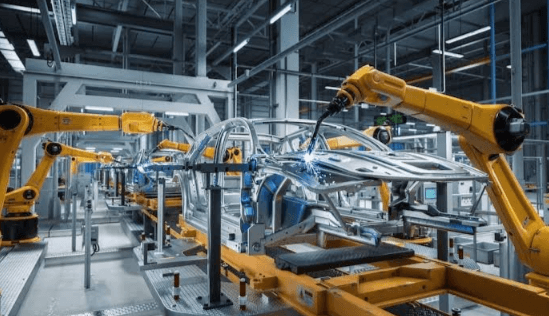What Are the Latest Developments in Sustainable Technology and How Are They Helping to Combat Climate Change?

Introduction
Sustainable technology is rapidly evolving to address the pressing issue of climate change. From renewable energy advancements to groundbreaking innovations in recycling and resource management, these technologies are transforming our approach to sustainability. This article delves into the latest developments in sustainable technology and examines how they are helping to combat climate change.
Latest Developments in Renewable Energy
The renewable energy sector is witnessing remarkable advancements. Innovations in solar power, such as perovskite solar cells, are increasing efficiency and reducing costs. Wind energy is also progressing with the development of larger and more efficient turbines, as well as offshore wind farms that capitalize on stronger and more consistent wind patterns.
The Role of Smart Grids in Energy Management
Smart grids are revolutionizing how electricity is distributed and consumed. By integrating digital technology, these grids allow for real-time monitoring and management of energy flow. This optimization reduces energy waste, enhances the integration of renewable energy sources, and ensures a more stable and efficient power supply, ultimately lowering greenhouse gas emissions.
Advancements in Electric and Hybrid Vehicles
Electric and hybrid vehicles are becoming more mainstream due to significant advancements in battery technology. Innovations like solid-state batteries are extending the range of electric vehicles and reducing charging times. Additionally, improvements in charging infrastructure are making it more convenient for consumers to switch to electric vehicles, contributing to a reduction in fossil fuel use and emissions.
Innovations in Sustainable Building Materials
The construction industry is embracing sustainable building materials to reduce its environmental impact. Materials such as cross-laminated timber, recycled steel, and low-carbon concrete are becoming more popular. These materials not only decrease emissions during production but also improve the energy efficiency of buildings, contributing to lower overall carbon footprints.
The Impact of Green Hydrogen
Green hydrogen is emerging as a promising clean energy source. Produced through electrolysis using renewable energy, green hydrogen can be used in various applications, from transportation to industrial processes. Advances in electrolysis technology are making green hydrogen production more efficient and cost-effective, paving the way for wider adoption.
Breakthroughs in Carbon Capture and Storage
Carbon capture and storage (CCS) technologies are critical for reducing carbon dioxide emissions from industrial sources. Recent breakthroughs are enhancing the efficiency and scalability of CCS systems. These advancements are making it more feasible to capture and store CO2, preventing it from entering the atmosphere and contributing to climate change.
The Role of Artificial Intelligence in Sustainability
Artificial intelligence (AI) is playing a pivotal role in promoting sustainability. AI is being used to optimize energy use in smart homes and cities, predict renewable energy generation patterns, and improve recycling processes. By leveraging AI, we can make more informed decisions and enhance the efficiency of sustainable technologies.
Innovations in Sustainable Agriculture
Sustainable agriculture technologies are helping to minimize the environmental impact of farming. Precision farming techniques, including the use of drones and IoT sensors, optimize water and fertilizer use, reducing waste and improving crop yields. Additionally, vertical farming and hydroponics are becoming more prevalent, offering resource-efficient ways to grow food.
Revolutionizing Waste Management
Waste management is undergoing significant changes with the advent of advanced sorting technologies, waste-to-energy systems, and biodegradable materials. These innovations are improving recycling rates, reducing landfill waste, and recovering valuable resources. Such technologies are crucial for developing a circular economy and reducing pollution.
The Importance of Sustainable Water Management
Water scarcity is a growing concern, and sustainable water management technologies are essential for addressing this issue. Innovations like desalination, wastewater treatment, and smart irrigation systems are improving water efficiency and ensuring a sustainable supply of clean water for future generations.
Developments in Green Finance
Green finance is crucial for supporting the development and deployment of sustainable technologies. Financial instruments such as green bonds and sustainability-linked loans are incentivizing businesses to adopt environmentally friendly practices. This influx of capital is driving investment in renewable energy, sustainable agriculture, and other green initiatives.
The Role of Policy and Regulation
Government policies and regulations are vital for promoting the adoption of sustainable technologies. Supportive measures, such as subsidies for renewable energy projects and stricter emissions standards, encourage businesses and individuals to adopt greener practices. International agreements like the Paris Agreement also play a key role in coordinating global efforts to combat climate change.
Community-Based Sustainability Initiatives
Grassroots and community-based initiatives are essential for fostering sustainability at the local level. Community solar projects, urban farming initiatives, and local recycling programs are empowering individuals to contribute to environmental conservation. These initiatives create a culture of sustainability and encourage broader adoption of green practices.
The Future of Sustainable Technology
The future of sustainable technology is bright, with continuous innovations on the horizon. Emerging technologies such as advanced energy storage systems, next-generation solar cells, and bio-based materials hold great promise for further reducing our environmental impact. As these technologies mature, they will play an increasingly significant role in our efforts to combat climate change.
The Importance of Public Awareness and Education
Raising public awareness and educating people about sustainable practices is crucial for driving change. Educational programs, media coverage, and public campaigns help inform individuals about the benefits of sustainable technology and how they can contribute to a greener future. Increased awareness leads to more informed choices and greater support for sustainability initiatives.
FAQs
What are the latest developments in renewable energy?
Recent developments in renewable energy include advancements in solar power technologies like perovskite solar cells and the expansion of offshore wind farms. These innovations are making renewable energy sources more efficient and cost-effective.
How do smart grids help in combating climate change?
Smart grids optimize the distribution and consumption of electricity by integrating digital technology for real-time monitoring and management. This reduces energy waste, enhances the integration of renewable sources, and lowers greenhouse gas emissions.
What innovations are making electric vehicles more viable?
Advancements in battery technology, such as solid-state batteries, are extending the range of electric vehicles and reducing charging times. Improved charging infrastructure is also making it more convenient for consumers to switch to electric vehicles.
How is green hydrogen produced and used?
Green hydrogen is produced using renewable energy to split water into hydrogen and oxygen through electrolysis. It can be used as a clean fuel in various applications, including transportation and industrial processes, offering a zero-emission energy solution.
What are some examples of sustainable building materials?
Examples of sustainable building materials include cross-laminated timber, recycled steel, and low-carbon concrete. These materials reduce emissions during production and improve the energy efficiency of buildings.
Why is artificial intelligence important for sustainability?
Artificial intelligence optimizes energy use, predicts renewable energy generation patterns, and improves recycling processes. AI enhances the efficiency and effectiveness of sustainable technologies by enabling more informed decisions.
Conclusion
Sustainable technology is playing a crucial role in combating climate change. From advancements in renewable energy and electric vehicles to innovations in waste management and sustainable agriculture, these technologies are helping to reduce our environmental impact and promote a greener future. As we continue to develop and adopt sustainable technologies, we move closer to achieving our climate goals. Embracing these innovations, supporting them through policy and investment, and raising public awareness are essential steps in creating a sustainable world.




